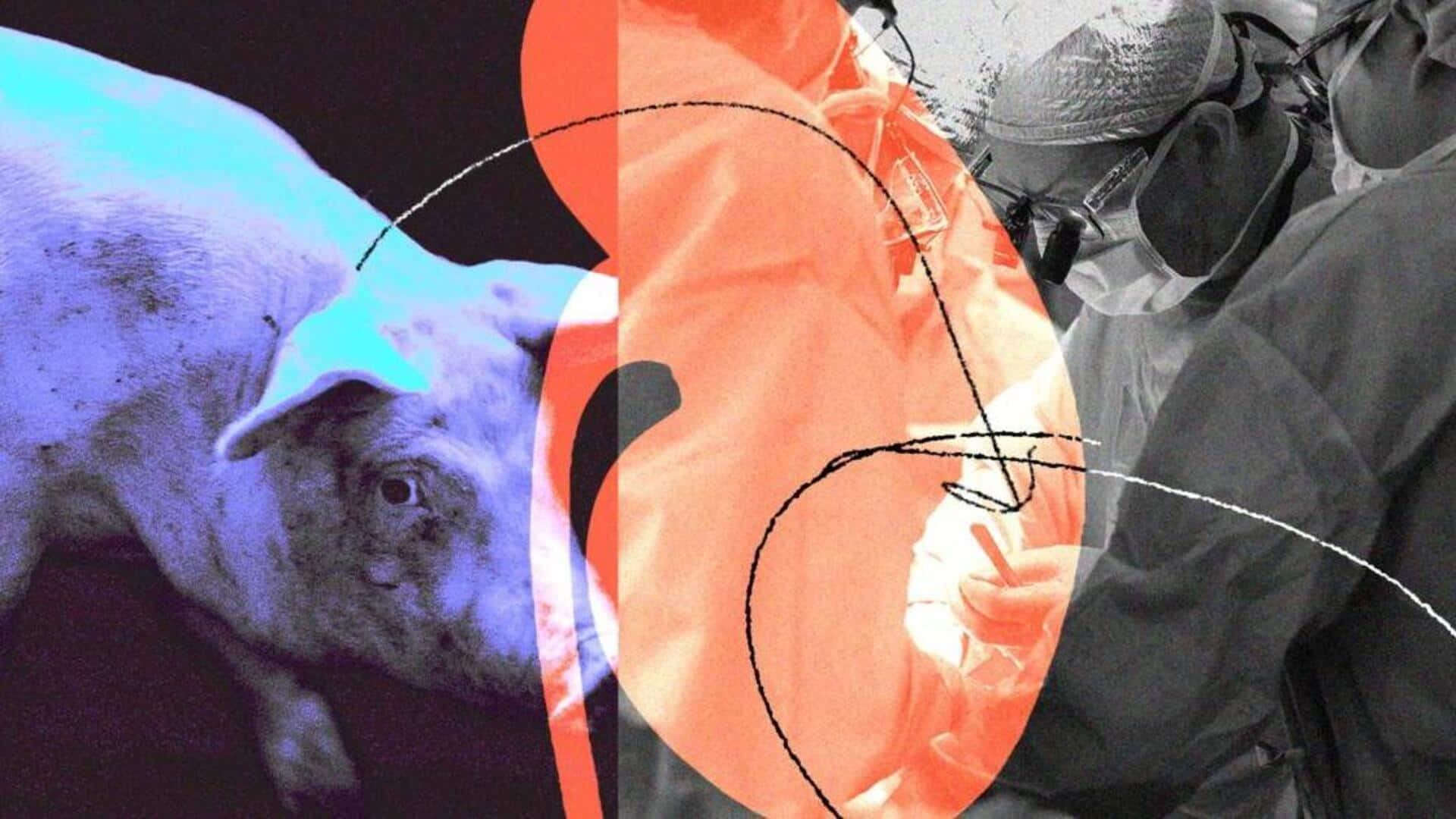
US approves trials for pig kidney transplants in humans
What's the story
The US Food and Drug Administration (FDA) has approved two biotech firms, United Therapeutics Corp. and eGenesis, to conduct clinical trials involving the transplantation of organs from genetically modified pigs into patients suffering from kidney failure.
The experimental procedure could revolutionize the field of organ transplantation, giving a new lease on life to thousands of Americans currently on the waiting list for organ transplants.
Trial details
United Therapeutics to begin trials with 6 patients
United Therapeutics Corp. has said its trial will start with six end-stage renal disease patients, around mid-2025.
The trial's scope could be expanded to include up to 50 people who are medically unfit for a donor kidney or have been on the waitlist for over five years without one.
After the transplant, patients will have a 24-week follow-up and lifelong monitoring for survival, UKidney function, and zoonotic infections.
Study approval
eGenesis also receives FDA approval for kidney transplant study
Another biotech firm, eGenesis, has also received FDA approval to conduct a kidney transplant study on three patients.
The company's CEO, Mike Curtis, expressed his enthusiasm about this development stating, "We are entering a transformative era in organ transplantation."
This statement underscores the potential impact of these trials on the future of organ transplantation.
Transplant demand
Over 106,000 people await organ transplants in US
In the US alone, more than 106,000 people are on the national list waiting for organ transplants, with kidneys being the most in-demand organ.
However, only some 27,000 kidney transplants were performed in 2023.
More than half a million patients are currently receiving dialysis treatment.
These numbers underscore the urgent need for innovative solutions like xenotransplantation—transplanting an organ from one species to another—to meet the increasing demand for organs.
Ethical issues
Xenotransplantation: A potential solution with ethical concerns
While xenotransplantation presents a potential solution to the organ shortage crisis, it also raises ethical and health concerns.
These include the risk of zoonotic infections and helping patients understand the unknown risks associated with such procedures.
Despite these challenges, advancements in gene-editing techniques are making xenotransplantation more feasible by reducing organ rejection rates.
Participant criteria
United Therapeutics sets criteria for trial participants
For the next trial, United Therapeutics has defined strict criteria for participants.
They should be aged between 55 and 70 years and have been on dialysis for a minimum of six months.
Following surgery, the patients will be observed for at least 12 weeks before an independent review determines whether or not to broaden the study.